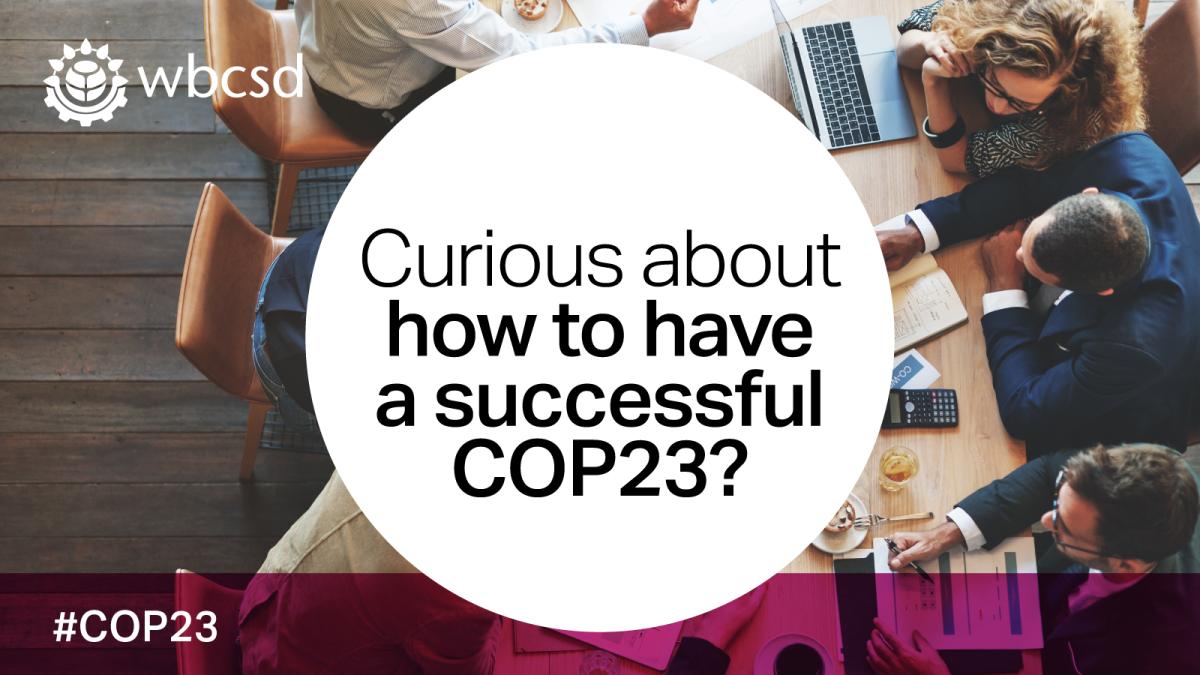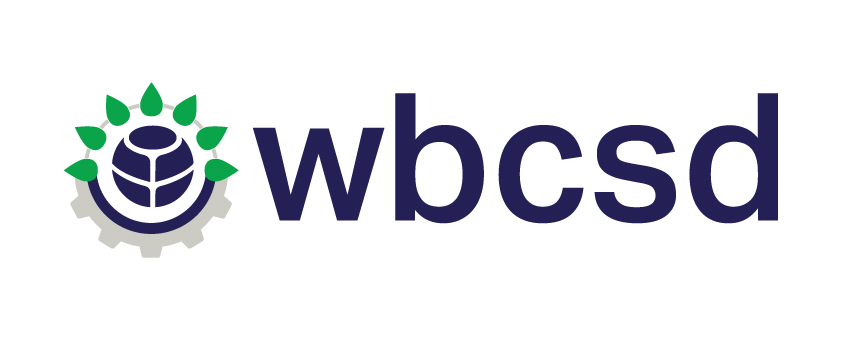World Business Council Releases Policy Recommendations for Climate Negotiators at the Start of COP23 in Bonn

BONN, Germany, November 6, 2017 /3BL Media/ -- Today at the start of COP23, the World Business Council for Sustainable Development (WBCSD) released key policy recommendations for this year’s round of climate negotiations ahead of next year’s global stock take on progress made towards the Paris Agreement.
Strong business leadership will continue to accelerate implementation of climate action, but collaboration between business and government is a necessary enabler for scaling climate action across the world.
“Business is an essential implementation partner in reducing emissions and therefore needs to be fully involved in shaping the next round of national climate action plans,” said Peter Bakker, President and CEO at the World Business Council for Sustainable Development (WBCSD).
Having analyzed the politics, policies and priorities around this year’s Conference of the Parties (COP), WBCSD and its members are focusing this year’s business advocacy efforts on:
- The Marrakech Partnership: Business is calling for a more structured approach to dialogues with policymakers.
The Marrakech Partnership for global climate action provides a platform for showcasing successful approaches to reducing greenhouse gases and enhancing climate resilience. The Partnership will need to focus more on policy dialogue between governments and other stakeholders to enable deployment of climate solutions at scale.
- The Facilitative Dialogue: Business is pushing for clear mechanisms to provide input into the Facilitative Dialogue for taking stock of collective progress towards the Paris Agreement and increasing ambition in the next round of NDCs.
A draft design of what the facilitative dialogue will look like and how stakeholders can be involved will be presented during COP23.
- Climate resilience: Climate change is a significant and material risk to business. Companies are pushing for partnerships that will build resilience across their supply chains and the frontline communities experiencing climate impacts.
- Carbon pricing: Business is also calling for a meaningful carbon price. Governments need to find ways to align carbon pricing mechanisms, ensuring that pricing is credible, predictable and high enough to drive ambition consistent with the Paris Agreement. See our new in-depth guide for policy makers on carbon pricing.
“The private sector will be the force behind emissions reductions across global supply chains,” said Maria Mendiluce, Managing Director at WBCSD. “As we build on the success of Paris, companies have become full partners in shaping an inclusive and prosperous low-carbon economy.”
Follow WBCSD’s Twitter and LinkedIn over the course of the week for important updates from the event.
For more information, please contact:
Felicity Glennie-Holmes
WBCSD Communications
glennie-holmes@wbcsd.org
+41 22 839 3110
About the World Business Council for Sustainable Development (WBCSD)
WBCSD is a global, CEO-led organization of over 200 leading businesses working together to accelerate the transition to a sustainable world. We help make our member companies more successful and sustainable by focusing on the maximum positive impact for shareholders, the environment and societies.
Our member companies come from all business sectors and all major economies, representing a combined revenue of more than $8.5 trillion and 19 million employees. Our global network of almost 70 national business councils gives our members unparalleled reach across the globe. WBCSD is uniquely positioned to work with member companies along and across value chains to deliver impactful business solutions to the most challenging sustainability issues.
Together, we are the leading voice of business for sustainability: united by our vision of a world where more than 9 billion people are all living well and within the boundaries of our planet, by 2050.

